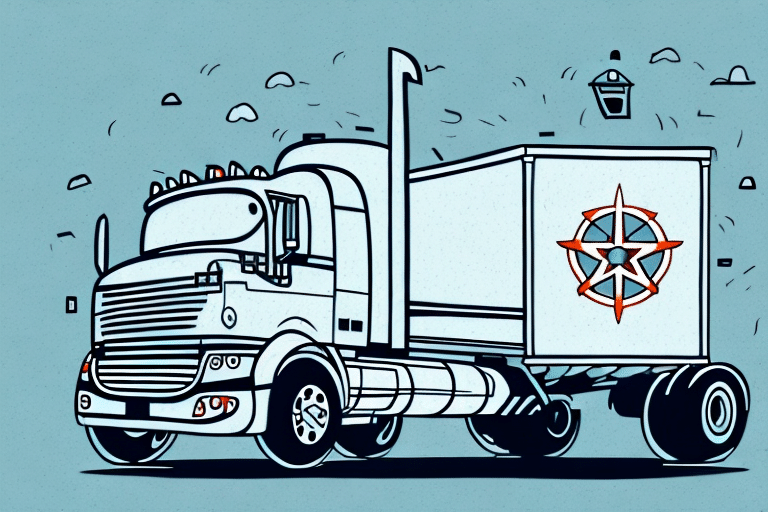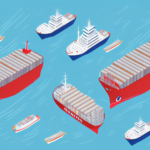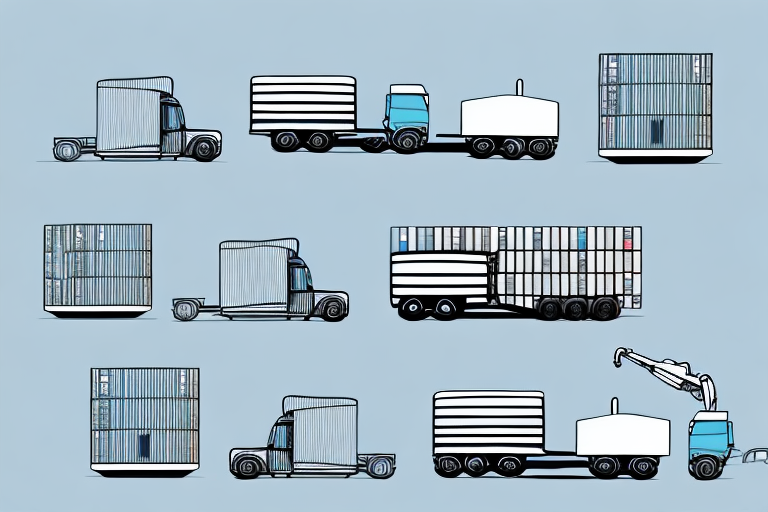Understanding Freight Insurance: What You Need to Know
As a business owner, shipping is a critical component of your success. However, shipping comes with certain risks, including the potential for damage or loss of your freight. This is where freight insurance becomes essential. In this comprehensive guide, we'll explore everything you need to know about freight insurance, including its various types, benefits, and limitations.
What is Freight Insurance?
Freight insurance is a type of coverage that protects your cargo from damage, loss, or theft while in transit. It offers financial protection to businesses that rely heavily on shipping to maintain operations. Freight insurance policies can be customized to cover various modes of transportation, including rail, sea, air, and road, and typically cover both domestic and international shipments.
It's important to note that freight insurance differs from carrier liability coverage, which is provided by the carrier transporting the goods. Carrier liability coverage is often limited and may not cover the full value of your cargo. In contrast, freight insurance can provide coverage for the full value of your shipment and may also cover additional expenses such as freight charges and duties.
According to Underwriting Online, appropriate freight insurance can significantly reduce financial risks associated with shipping, ensuring business continuity even in the face of unexpected events.
Types of Freight Insurance Coverage
All-Risk Coverage
This type of policy provides comprehensive coverage for your goods against all risks of physical loss or damage, except those explicitly excluded in the contract.
Named Perils Coverage
Named perils coverage protects against specific risks listed in the policy, such as fire, theft, or natural disasters.
General Average Coverage
This coverage pays for losses resulting from general averages, such as a ship's crew jettisoning cargo to save the vessel from sinking.
Warehouse-to-Warehouse Coverage
Warehouse-to-warehouse coverage provides protection throughout the entire shipment process, including storage and handling between transit modes.
Voyage Policy
A voyage policy covers a specific shipment from one point to another, ideal for businesses that do not ship goods frequently and want to insure a single shipment.
Contingency Insurance
Contingency insurance covers losses resulting from events beyond your control, such as natural disasters, political unrest, or war. This is particularly useful for businesses operating in high-risk areas or transporting valuable goods.
Benefits of Having Freight Insurance
- Financial Protection: Ensures your business is reimbursed in the event of loss or damage to your cargo.
- Peace of Mind: Knowing your cargo is insured allows you to focus on other aspects of your business.
- Credibility with Customers: Offering freight insurance demonstrates reliability and builds trust with your customers.
Additionally, freight insurance helps avoid disputes with carriers. If your cargo is lost or damaged during transit, you can file a claim with your insurer instead of battling with carriers over liability. According to the U.S. Department of Transportation, having insurance can also lead to long-term savings by preventing the high costs associated with replacing lost or damaged cargo.
Risks of Shipping Freight Without Insurance
- Financial Loss: Without insurance, loss or damage to your cargo can result in significant financial setbacks.
- Liability Issues: You may be held liable for damages to other property caused by your goods during transit.
- Loss of Customers: Damaged or lost cargo can erode customer trust and lead to loss of business.
- Theft: Cargo theft is a common risk in the transportation industry, and without insurance, the financial impact can be severe.
Moreover, businesses without freight insurance may find it difficult to compete with those that offer insured shipments, as customers often prefer the added security insurance provides.
Choosing the Right Freight Insurance Policy
Coverage Limits
Ensure that the policy's coverage limits match the value of your cargo to avoid underinsurance.
Deductibles
Review the policy's deductible and choose one that is affordable and aligns with your risk tolerance.
Exclusions
Understand any exclusions in the policy that could affect your coverage, such as specific types of goods or transit routes.
Premiums
Compare quotes from different providers to ensure you're getting a competitive rate for the coverage you need.
Type of Coverage
Ensure the policy covers the specific type of cargo you're shipping and the modes of transportation you're using.
Insurance Provider's Reputation
Choose a provider with a strong track record of paying claims and a high financial rating. Resources like NAIC can help you evaluate the financial stability of insurance providers.
Factors Affecting Freight Insurance Premiums
- Nature of the Cargo: Perishable, fragile, or high-value goods may incur higher premiums.
- Mode of Transportation: Air freight generally costs more to insure than sea or road due to higher risks and faster transit times.
- Destination and Origin: Routes with higher risks of theft or adverse weather conditions can lead to higher premiums.
- Value of the Shipment: Higher-value shipments require more coverage, increasing the premium.
- Level of Coverage: Comprehensive coverage plans cost more but offer greater protection.
Additionally, the carrier's safety record plays a significant role. A carrier with a history of accidents or cargo damage may result in higher insurance premiums. Conversely, working with reputable carriers can help lower your insurance costs.
For more detailed insights, refer to the Insurance Journal, which provides updates on factors influencing insurance premiums.
Understanding Limitations and Exclusions in Freight Insurance Policies
It's crucial to thoroughly read and understand all limitations and exclusions in your freight insurance policy. Common exclusions include:
- Wilful misconduct
- Inherent vice (natural deterioration of goods)
- Loss or damage due to war, strikes, or riots
Understanding these limitations helps avoid surprises when filing a claim. Additionally, be aware of the maximum liability limit, which is the highest amount the insurance company will pay out for a claim. Ensure this limit sufficiently covers the full value of your shipment.
Some policies may also exclude specific types of goods, such as hazardous materials or fragile items. Carefully review your policy to confirm comprehensive coverage for your shipments.
For more information on policy limitations, visit the Nolo Legal Encyclopedia.
Filing a Claim for Damaged or Lost Freight
In the event that your cargo is lost or damaged, it's essential to file a claim promptly. The claims process can vary depending on the insurance provider, so follow the specific guidelines provided by your insurer. Typically, you'll need to provide documentation such as:
- Invoices
- Shipping records
- Photos of the damage
Be mindful of the policy's time limits for filing claims to avoid rejection. Keeping detailed records of your cargo's condition before and after shipping can support your claim effectively.
If you're uncertain about the claims process, reach out to your insurance provider for guidance. They can offer the necessary information and support to ensure your claim is handled correctly.
For detailed steps on filing an insurance claim, refer to the Federal Trade Commission.
Tips for Lowering Your Freight Insurance Costs
- Careful Packaging: Reduces the likelihood of damage and can lower premiums.
- Higher Deductibles: Opting for a higher deductible can decrease your premium costs.
- Reputable Shipping Companies: Working with reliable carriers reduces risks and insurance costs.
- Appropriate Coverage Levels: Tailor coverage to each shipment to avoid unnecessary expenses.
- Consolidate Shipments: Combining multiple shipments can reduce the number of individual insurance policies needed.
- Regular Policy Reviews: Assess and adjust your coverage as your business grows and changes.
Implementing these strategies can help you manage and potentially reduce your freight insurance expenses without compromising coverage quality.
Common Misconceptions About Freight Insurance
There are several misconceptions surrounding freight insurance that can lead to inadequate coverage:
- Misconception: Carriers are always responsible for any loss or damage.
- Fact: Carrier liability is often limited and may not cover the full value of your cargo. It's essential to have separate freight insurance to ensure comprehensive protection.
- Misconception: All freight insurance policies are the same.
- Fact: Policies vary widely in terms of coverage, exclusions, and limits. It's crucial to choose a policy that aligns with your specific needs.
Understanding the realities of freight insurance ensures that you make informed decisions about your coverage.
Key Considerations for International Shipping and Freight Insurance
International shipping introduces additional complexities and risks. When securing freight insurance for international shipments, consider the following:
- Laws and Regulations: Different countries have varying laws and regulations that can affect your insurance coverage.
- Currency Exchange Rates: Fluctuations can impact the value of your coverage and claims.
- Mode of Transportation: Each mode has unique risks that should be addressed in your policy.
- Customs Regulations: Compliance with destination country protocols is essential to avoid delays and additional costs.
Ensuring your policy covers these aspects can help mitigate risks associated with international shipping. For more information on international shipping regulations, visit the U.S. Customs and Border Protection.
The Role of Brokers and Intermediaries in Obtaining Freight Insurance
If navigating the complexities of freight insurance seems daunting, consider working with a broker or intermediary. These professionals can help you:
- Find the right policy that meets your specific needs.
- Compare quotes from multiple providers to ensure competitive rates.
- Assist with filing claims and resolving any issues that arise during the shipping process.
Brokers leverage their industry knowledge and relationships to provide tailored insurance solutions, making the process more efficient and less stressful for businesses.
To find a reputable insurance broker, refer to the National Association of Insurance Brokers.
The Future of Freight Insurance: Trends and Developments
The freight insurance landscape is continually evolving to address emerging risks and technological advancements. Key trends and developments include:
- Customized Policies: More tailored insurance solutions that meet the specific needs of individual businesses.
- Technology Integration: Increased use of GPS tracking, autonomous vehicles, and blockchain to reduce risks and enhance transparency.
- Sustainability Focus: Greater emphasis on eco-friendly shipping methods and sustainable practices, potentially influencing insurance coverage and premiums.
- Data Analytics: Leveraging big data to assess risks more accurately and set premiums accordingly.
Staying informed about these trends can help businesses adapt their insurance strategies to stay protected in a changing environment.
For more insights into the future of freight insurance, explore reports from the International Brokers Federation.
Evaluating Your Current Freight Insurance Coverage and Needs
Regularly evaluating your freight insurance coverage ensures it continues to meet your business needs. Consider the following factors during your assessment:
- Changes in Cargo Value: As your business grows, the value of your shipments may increase, necessitating higher coverage limits.
- New Destinations or Shipping Methods: Expanding to new markets or adopting different transportation modes may introduce new risks.
- Emerging Risks: Stay informed about new threats, such as cyber risks in logistics, and ensure your coverage addresses them.
Regular evaluations help identify gaps in your coverage and allow you to make necessary adjustments proactively.
For a comprehensive guide on evaluating insurance needs, visit Insurance Information Institute.






















